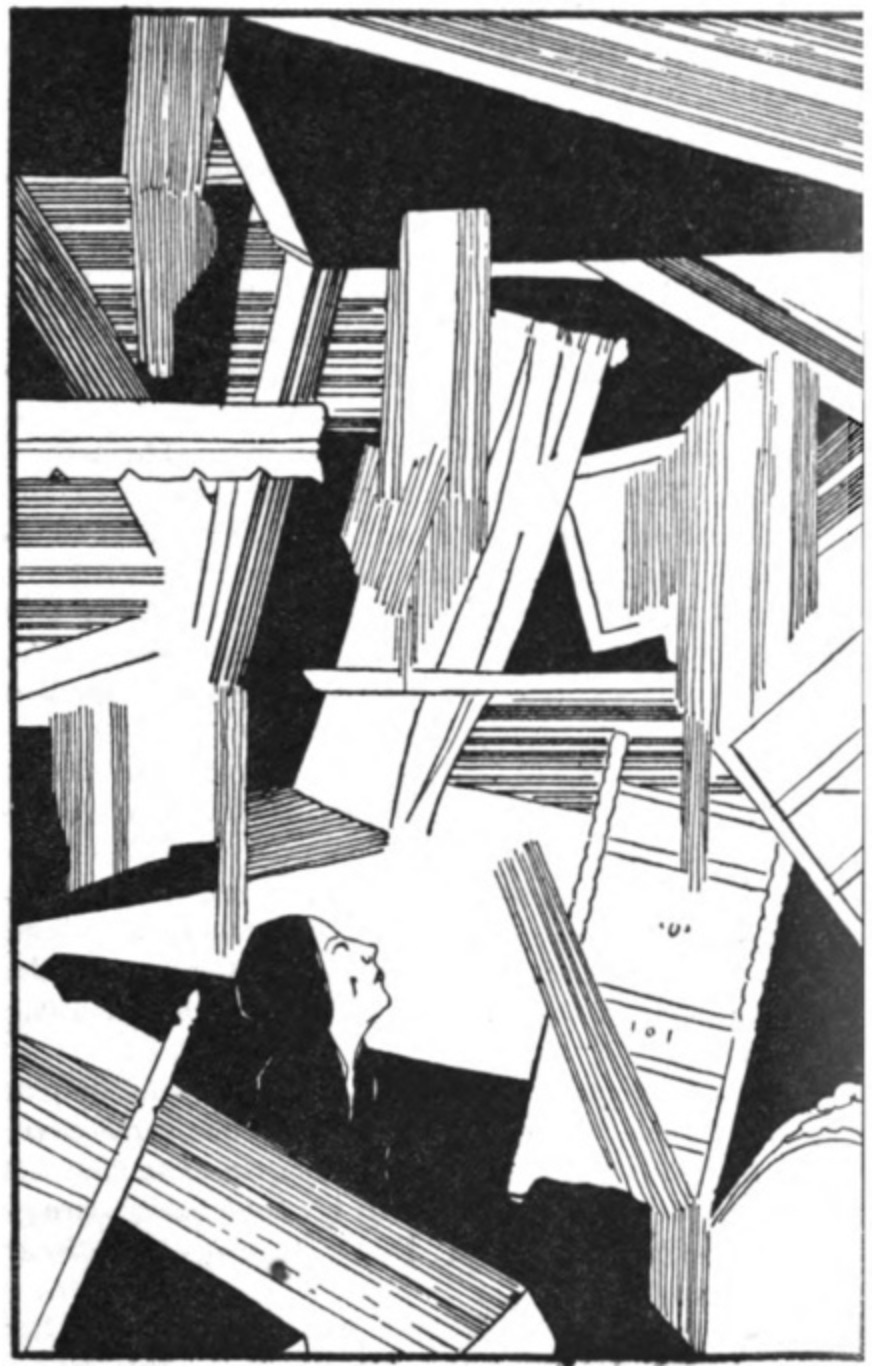WHERE THEIR FIRE IS NOT QUENCHED (4)
By:
January 24, 2024

May Sinclair’s “Where Their Fire is Not Quenched” was first published in the English Review in October 1922 and later appeared in Sinclair’s 1923 collection Uncanny Stories. It has frequently been reprinted in supernatural, horror, and fantasy anthologies; I’m grateful to Paul March-Russell, whose Modernism and Science Fiction encourages us to think of Sinclair as also being a proto-sf author. (PS: Interesting to compare this story’s ending with Sartre’s No Exit, p. 1944.) HiLoBooks is pleased to serialize it here for HILOBROW’s readers.
ALL INSTALLMENTS: 1 | 2 | 3 | 4 | 5 | 6 | 7 | 8 | 9 | 10.
He was irritated. “Women never seem to consider that a man can get all the talk he wants from other men. What’s wrong is our meeting in this unsatisfactory way. We ought to live together. It’s the only sane thing. I would, only I don’t want to break up Muriel’s home and make her miserable.”
“I thought you said she wouldn’t care.”
“My dear, she cares for her home and her position and the children. You forget the children.”
Yes. She had forgotten the children. She had forgotten Muriel. She had left off thinking of Oscar as a man with a wife and children and a home.
He had a plan. His mother-in-law was coming to stay with Muriel in October and he would get away. He would go to Paris, and Harriott should come to him there. He could say he went on business. No need to lie about it; he had business in Paris.
He engaged rooms in an hotel in the rue de Rivoli. They spent two weeks there.
For three days Oscar was madly in love with Harriott and Harriott with him. As she lay awake she would turn on the light and look at him as he slept at her side. Sleep made him beautiful and innocent; it laid a fine, smooth tissue over his coarseness; it made his mouth gentle; it entirely hid his eyes.
In six days reaction had set in. At the end of the tenth day, Harriott, returning with Oscar from Montmartre, burst into a fit of crying. When questioned, she answered wildly that the Hotel Saint Pierre was too hideously ugly it was getting on her nerves. Mercifully Oscar explained her state as fatigue following excitement. She tried hard to believe that she was miserable because her love was purer and more spiritual than Oscar’s; but all the time she knew perfectly well she had cried from pure boredom. She was in love with Oscar, and Oscar bored her. Oscar was in love with her, and she bored him. At close quarters, day in and day out, each was revealed to the other as an incredible bore.
At the end of the second week she began to doubt whether she had ever been really in love with him.
Her passion returned for a little while after they got back to London. Freed from the unnatural strain which Paris had put on them, they persuaded themselves that their romantic temperaments were better fitted to the old life of casual adventure.
Then, gradually, the sense of danger began to wake in them. They lived in perpetual fear, face to face with all the chances of discovery. They tormented themselves and each other by imagining possibilities that they would never have considered in their first fine moments. It was as though they were beginning to ask themselves if it were, after all, worth while running such awful risks, for all they got out of it. Oscar still swore that if he had been free he would have married her. He pointed out that his intentions at any rate were regular. But she asked herself: Would I marry him? Marriage would be the Hotel Saint Pierre all over again, without any possibility of escape. But, if she wouldn’t marry him, was she in love with him? That was the test. Perhaps it was a good thing he wasn’t free. Then she told herself that these doubts were morbid, and that the question wouldn’t arise.
One evening Oscar called to see her. He had come to tell her that Muriel was ill.
“Seriously ill?”
“I’m afraid so. It’s pleurisy. May turn to pneumonia. We shall know one way or another in the next few days.”
A terrible fear seized upon Harriott. Muriel might die of her pleurisy; and if Muriel died, she would have to marry Oscar. He was looking at her queerly, as if he knew what she was thinking, and she could see that the same thought had occurred to him and that he was frightened too.
Muriel got well again; but their danger had enlightened them. Muriel’s life was now inconceivably precious to them both; she stood between them and that permanent union, which they dreaded and yet would not have the courage to refuse.
RADIUM AGE PROTO-SF: “Radium Age” is Josh Glenn’s name for the nascent sf genre’s c. 1900–1935 era, a period which saw the discovery of radioactivity, i.e., the revelation that matter itself is constantly in movement — a fitting metaphor for the first decades of the 20th century, during which old scientific, religious, political, and social certainties were shattered. More info here.
SERIALIZED BY HILOBOOKS: James Parker’s Cocky the Fox | Annalee Newitz’s “The Great Oxygen Race” | Matthew Battles’s “Imago” | & many more original and reissued novels and stories.
